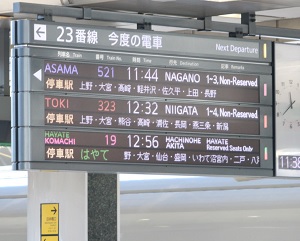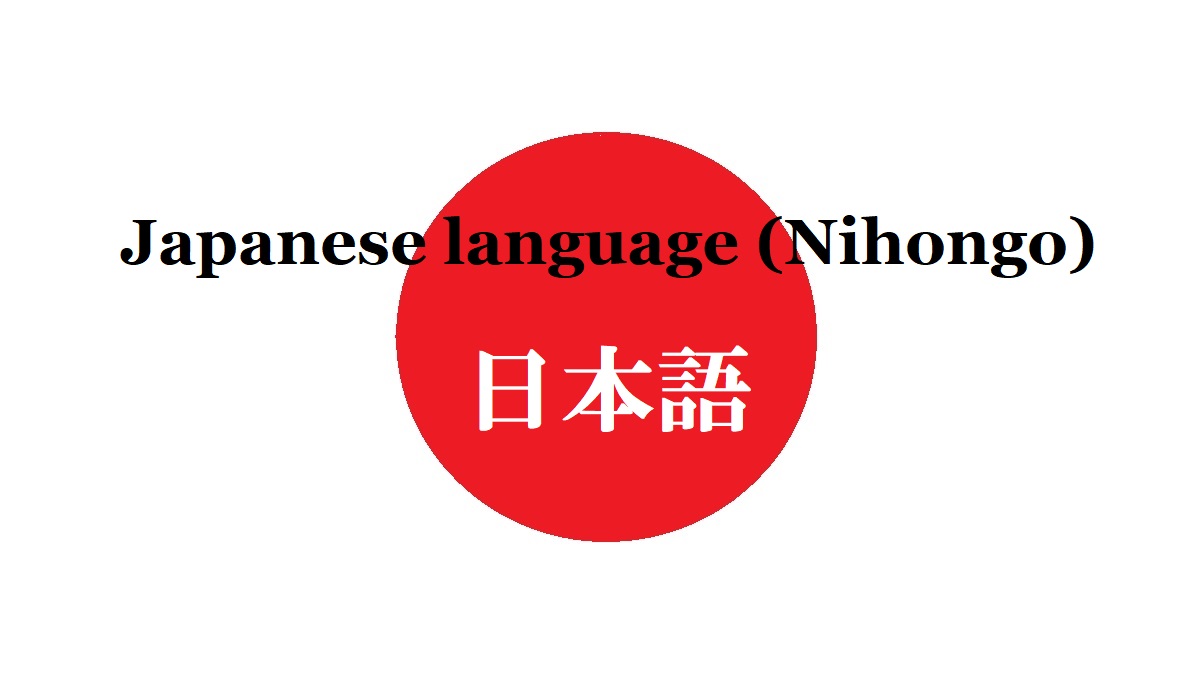Japanese language (Nihongo)

We can find many Japanese characters. Dotonbori street in Osaka city
Japanese is the language spoken in only Japan.
Japan has a population of 123 million.
Therefore the number of Japanese speakers is nearly equal to the population.
There are Korea, Taiwan and China around Japan.
They are geographically close to Japan, and the face and the body type are similar to each other.
But the languages they speak differ from one another.
I’m a Japanese, but Chinese and Korean are quite incomprehensible foreign languages for me.
First, please know that Japanese is a separate language in East Asia.
Most foreign learners say that Japanese is very difficult.
One of the reasons is that large variety of characters of Kanji (Chinese character), Hiragana and Katakana sets are used.
It is very hard for foreign learner to learn all characters perfectly.
Even Japanese people learn all of them step by step for 9 years in elementary school and junior high school.
The children are just in the process that the brain develops.
And, they naturally watch, read and write the characters in daily life.
Therefore, they can learn easily to be able to use a lot of complicated characters smoothly during the period.
If you want to achieve that, it will probably take a full decade.
So, I think that you should learn the characters as an additional recreation with a light heart.

A sign in Tokyo station
You may have a question whether you have trouble with Japanese characters when you visit Japan.
The answer is no.
On many guideboards in any town, important words are written in English.
Recently, we can find the words in Chinese and Korean on some guideboards.
Some brochures have descriptions in English.
Because all Japanese people learn English in their school days, you can communicate with English to a degree.
(Of course, there are many Japanese who can’t speak English…)
But if you speak Japanese, you will be able to enjoy Japan more, I think.
Another reason is that the language structure of Japanese is completely different from many other major languages such as English, French, Spanish, Chinese, etc.
However, Japanese is a language having a high degree of freedom for expression.
Of course, the inflection of the words such as verb, auxiliary verb, adjective is very complex.
If you learn Japanese by rule of strict grammar, you may give up soon.
But, if you learn some easy expressions of greeting, shopping, asking the way, etc., you will enjoy Japan trip more.
I introduce some knowledges of Japanese for you.
Pronunciation and characters of Japanese
Pronunciation and characters are closely tied in Japanese.
As the base of Japanese, I explain them.
There are three sets of characters for Japanese language.
They are Hiragana, Katakana, and Kanji (Chinese character).
These characters are mixed in accordance with the usage in Japanese sentence.
And, Japanese sentence can be written both horizontally and vertically.
Vertical writing is the traditional style, so newspaper and most books use the style.
Because the line is written from right to left, the first page of the book is on the right side.
Horizontal writing is mainly used in the documents created in computer and the books of science and technology using numeric characters, numerical expressions, foreign langage, etc.
Japanese notation on sign, guide plate, etc. can use both styles according to its shape.
Therefore, Japanese character is very convenient.
Japanese sentence
Let's learn the Japanese greetings that you need not think about the grammar.
If you are interesting in Japanese language, read the following pages.
You may know the overview of Japanese language.
Japanese name
Needless to say, Japanese name depends on the sounds in the Japanese language.
As a knowledge of Japanese, I write about Japanese name.


